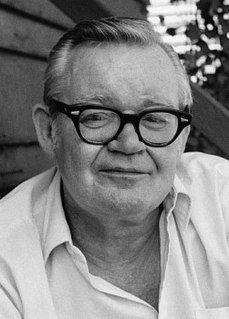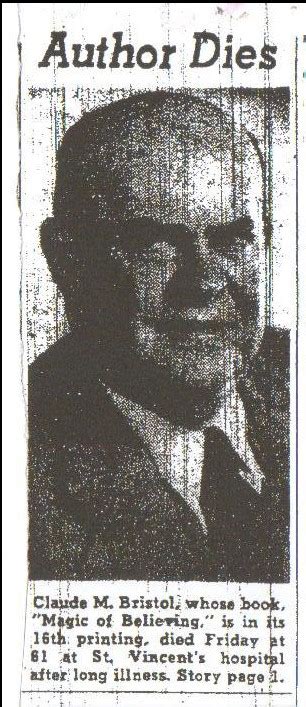A Quote by John Clellon Holmes
Some books accrete things to themselves like a magnet. The writer risks sterility by subjecting the mysterious power of imagination to the devices of mere comprehension.
Related Quotes
To create power is like a magnet, this is true because this creative power operates like a magnet. Give it a strong clear picture of what you want and this creative power starts to work magnetizing conditions about you - attracting to you things, resources, opportunities, circumstances and even the people you need, to help bring to pass in your outer life what you have pictured.
As every writer knows... there is something mysterious about the writer's ability, on any given day, to write. When the juices are flowing, or the writer is 'hot', an invisible wall seems to fall away, and the writer moves easily and surely from one kind of reality to another... Every writer has experienced at least moments of this strange, magical state. Reading student fiction one can spot at once where the power turns on and where it turns off, where the writer writes from 'inspiration' or deep, flowing vision, and where he had to struggle along on mere intellect.
If one should give me a dish of sand, and tell me there were particles of iron in it, I might look for them with my eyes, and search for them with my clumsy fingers, and be unable to detect them; but let me take a magnet and sweep through it, and how would it draw to itself the almost invisible particles by the mere power of attraction. The unthankful heart, like my finger in the sand, discovers no mercies; but let the thankful heart sweep through the day, and as the magnet finds the iron, so it will find, in every hour, some Heavenly blessings.
There are some advantages to being a writer: you do generally get better as you get older. I think I understand things better. When I was a kid, I was kind of guessing at the emotion. Now I'm interested in writing more difficult books, books that confront the facts of life, of death and dying and failure - the majority of life. You write outwardly imaginative books when you're younger. When you're older you apply imagination to internal experience.
Must love be ever treated with profaneness as a mere illusion? or with coarseness as a mere impulse? or with fear as a mere disease? or with shame as a mere weakness? or with levity as a mere accident? whereas it is a great mystery and a great necessity, lying at the foundation of human existence, morality, and happiness,--mysterious, universal, inevitable as death.
[G]overnment can, instead of extending freedom, restrict freedom. And note ... that the 'can' quickly becomes 'will' the moment the holders of government power are left to their own devices. This is because of the corrupting influence of power, the natural tendency of men who possess some power to take unto themselves more power. The tendency leads eventually to the acquisition of all power - whether in the hands of one or many makes little difference to the freedom of those left on the outside.
Want of imagination makes things unreal enough to be destroyed. By imagination I mean knowledge and love. I mean compassion. People of power kill children, the old send the young to die, because they have no imagination. They have power. Can you have power and imagination at the same time? Can you kill people you don’t know and have compassion for them at the same time?
Henry Corbin creates the world - most of all his examination of the imagination and what the imagination was for him. Some philosophers would think of the imagination as a synthetic ability, how you put different things together. Artists more think of the imagination as creativity. So I really like the way that he presents the imagination as a faculty that allows one to experience worlds that are not exactly physical but are real nonetheless.
Throughout history, works of art have been stolen under mysterious circumstances...Said by some to be the work of "Phantom" thieves... ...Others dismiss it as mere myth. But in this country, the stories are all too true. The name of this mysterious thief? "Dark." And his true identity? No one knows.
The trouble is that the risks that are being hedged very well by new financial securities are financial risks. And it appears to me that the real things you want to hedge are real risks, for example, risks in innovation. The fact is that you'd like companies to be able to take bigger chances. Presumably one obstacle to successful R&D, particularly when the costs are large, are the risks involved.



































